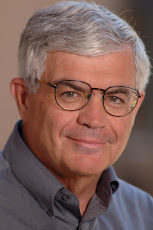Last night Yang Jisheng was awarded the 2012 Hayek Prize for his book Tombstone about the Chinese famine of 1958-1962. It’s an amazing book. It starts with Yang Jisheng returning home as a teenager to find a ghost town, trees stripped of bark, roots pulled up, ponds drained, and his father dying of starvation. He thought at the time that his father’s death was an isolated incident, only later learning that tens of millions died of starvation and that government policy was the cause.
Then you read about the Xinyang Incident: people tortured for simply suggesting that the crop yields were lower than exaggerated projections. Those projections led government to take the grain from the farmers who grew it and let many starve; and there are the horrific stories of cannibalism.
You also find out what life was like as a member of a communal kitchen. With free meals people first gorged themselves, but then food supplies ran out in a few months, and since there were no longer individual plots, people starved. The communes had to use giant woks which required huge amounts of fuel. So they clear-cut forests.
Political leaders blamed right-opportunists. Mao wrote a memo, praising one of the communal kitchens, saying that “the whole country must follow this example.” That one was in a province that suffered the largest percentage of starvation deaths relative to population.
What does this have to do with Hayek? On every page of Tombstone you see detailed case studies of what Hayek warned about: the pretense of knowledge as political leaders thought they could do away with the family and individual initiative, but ended starving 36 million people to death in the mother of all unintended consequences; the ludicrousness of an economic system which tries to do away with prices to provide information, signals, and incentives, and replaces it command and control; the dangers of repressing freedom and thereby creating a cruel silence which allowed starvation conditions to continue.
It‘s not easy to explain abstract ideas like economic freedom and the rule of law. Yang Jisheng’s Tombstone gives plenty of unforgettable examples.



